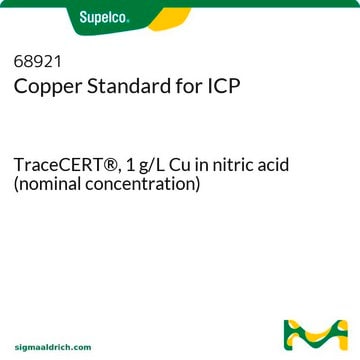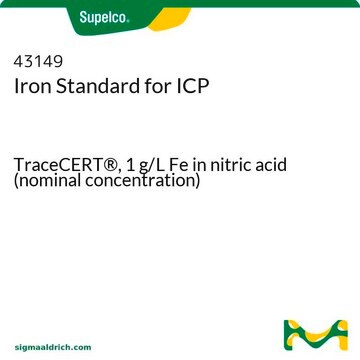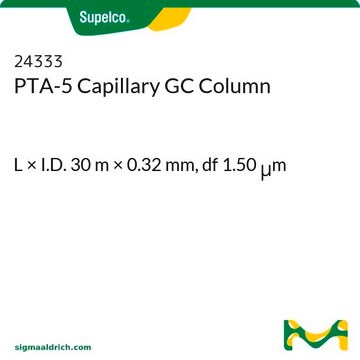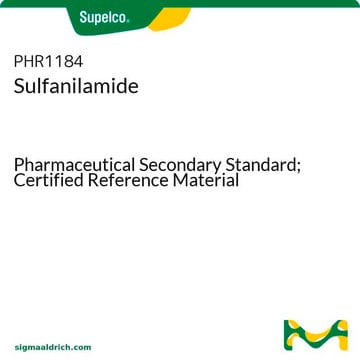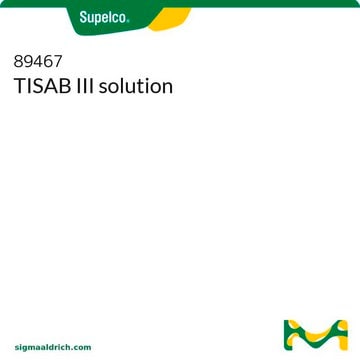32402
Sulfaguanidine
VETRANAL®, analytical standard
Synonym(s):
4-Amino-N-(aminoiminomethyl)benzenesulfonamide, 4-Amino-N-guanylbenzenesulfonamide
About This Item
Recommended Products
grade
analytical standard
Quality Level
product line
VETRANAL®
shelf life
limited shelf life, expiry date on the label
technique(s)
HPLC: suitable
gas chromatography (GC): suitable
application(s)
clinical testing
format
neat
SMILES string
NC(=N)NS(=O)(=O)c1ccc(N)cc1
InChI
1S/C7H10N4O2S/c8-5-1-3-6(4-2-5)14(12,13)11-7(9)10/h1-4H,8H2,(H4,9,10,11)
InChI key
BRBKOPJOKNSWSG-UHFFFAOYSA-N
Looking for similar products? Visit Product Comparison Guide
Related Categories
General description
Application
- Food samples of animal origin by salting-out supported liquid extraction (SOSLE) and quick, easy, cheap, effective, rugged and safe (QuEChERS) extraction followed by analysis using nanoflow liquid chromatography high resolution mass spectrometry (LC-HRMS).
- Bovine muscle samples by hydrophilic interaction liquid chromatography-electrospray-tandem mass spectrometry (HILIC-ESI-MS/MS) equipped with selected reaction monitoring (SRM) mode of detection.
- Tissues, milk and eggs of food producing animals by ultrasound-assisted extraction (UAE), solid phase extraction (SPE) and LC-MS/MS.
- Beeswax by solid-liquid extraction (SLE), liquid-liquid extraction (LLE), SPE, QuEChERS extraction and ESI-LC-MS/MS with SRM detection.
Legal Information
Signal Word
Warning
Hazard Statements
Precautionary Statements
Hazard Classifications
Eye Irrit. 2 - Skin Irrit. 2 - STOT SE 3
Target Organs
Respiratory system
Storage Class Code
11 - Combustible Solids
WGK
WGK 3
Choose from one of the most recent versions:
Already Own This Product?
Find documentation for the products that you have recently purchased in the Document Library.
Customers Also Viewed
Our team of scientists has experience in all areas of research including Life Science, Material Science, Chemical Synthesis, Chromatography, Analytical and many others.
Contact Technical Service


